Posts Tagged ‘attorney’
Massachusetts Boating Accidents Increased in 2012
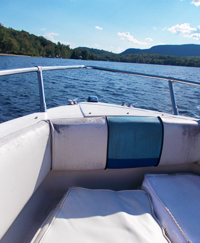
For Massachusetts boaters, a day on the water resulted in more injuries last year, according to state figures.
In 2012, Massachusetts saw 68 reported boating accidents, resulting in 17 deaths, according to the state Executive Office of Energy and Environmental Affairs. This was an increase from 2011, when there were 46 reported boating accidents and 9 deaths.
Nationally, there was a significant decrease in reported accidents. In 2012, 651 boating accidents were reported, down from 758 in 2011, according to the U.S. Coast Guard.
Massachusetts Environmental Police enforce the state’s boating laws and investigate recreational boat accidents on coastal and inland waters, except private lakes and ponds and those smaller than 10 acres. If you are in a boating accident involving personal injury, death or property damage over $500, you are required to report it.
Our Boston injury attorneys offer these safety tips for boating off Boston Harbor, Cape Cod or your favorite spot:
Wear life jackets. Many drownings and accidents result from failure to wear life jackets or not having appropriate life jackets onboard. In Massachusetts, children under 12 are required to wear life jackets on boats at all times and boats must have one life jacket on board for every passenger.
Life jackets are required for users of personal watercraft, such as Jet Skis.
Avoid alcohol. Avoid alcohol consumption while operating a boat. Alcohol use is involved in up to half of teen and adult deaths associated with water recreation, according to the Centers for Disease Control & Prevention.
Operating a boat under the influence is against the law in every state in the United States. In Massachusetts, the criminal punishment can include imprisonment, fines and a loss of motor vehicle license and boating registration for one year. If a boater causes serious bodily injury to another person, they may be imprisoned for up to 10 years and fined up to $5,000.
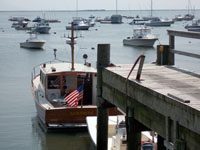
Training. The state’s Boat and Recreation Vehicle Safety Bureau offers training, which is mandatory for younger boaters but available to others as well.
Avoid swimming areas. In Massachusetts, boaters are prohibited from operating within 150 feet of shorelines used as swimming areas. You must stay more than 75 feet away from floats and markers that line designated swimming areas.
Beware of other boaters. Travel the permitted speed (generally 45 miles per hour on inland waters) and slow down as you approach other boaters. Your boat’s wake can cause another boat operator to lose control or injure the passengers.
Traveling with passengers. Do not exceed your boat’s passenger limit. Ask all your passengers to wear life jackets, especially young children. When you refuel your boat, ask your passengers to step off the boat. Make sure you have the right amount of food and water.
If you are traveling with children, explain the safe areas to sit, how to properly board the boat and what they cannot touch.
Aging or broken boat equipment. Before each season, have your boat checked for equipment failures. The Coast Guard offers free vessel checks or you ask your local boatyard. You can also check the government boat recall database.
Boating at night. It is best to boat during daylight, but if you go at night, make sure you have the proper navigation lights and limit your passengers so you can focus on operating the boat.
*********
Related:
State Environmental Officials Urge Residents to Follow Safe Boating Practices, Executive Office of Energy and Environmental Affairs.
Massachusetts Boating Law Summary, Executive Office of Energy and Environmental Affairs.
Take Extra Precautions with Propane Gas Grills This Holiday

For many of us, Fourth of July celebrations start with a barbecue grill. Many are powered by a propane gas tank and require special care in handling. Propane is an invisible, but highly flammable gas which can trigger an explosion if it leaks and comes into contact with fire.
When grills are not properly used or maintained or are left unattended, accidents can occur. There are several safety concerns associated with grills, including propane leaks, cooking burns and fires. In the last year, there have also been a few product recalls involving grills.
Propane Gas Leaks and Explosions
Protect your propane gas tank from leaks. Take care when transporting it to your refilling station. Place it in a secure box and return it immediately home after filling it. Have it inspected annually by a qualified professional.
Store the propane gas tank outside your home. Also keep it away from your garage or any deck attached to your home. These areas may seem safe to use because they are not living areas, but according to the U.S. Fire Administration, more than half of all residential grilling fires in the U.S. begin on porches, terraces, exterior balconies and similar areas.
Grilling Burns and Structure Fires
When grilling, the safest solution is to stay outside your home or apartment building, as far away as you can.
This protects your home as well as your guests and young children who are too often victims of grilling burns. According to the National Fire Protection Association, children under age 5 accounted for about one quarter of all thermal burn injuries in 2007. Many of these burns occur when children are curious and touch or bump up against the grill.
If you live in an apartment building or multi-unit dwelling, you may also want to check with your property manager and city and town offices for additional information. Massachusetts state law does permit use of propane grills on first floor porches only, but some cities have gone a step further. For instance, the city of Boston does not permit either propane or charcoal grills above ground floor porches. Grilling on rooftops is not permitted either.
Before heading out to the grill, review the manufacturer’s instructions first. If you no longer have the instructions, check if they are available on the manufacturer’s website.
Use long-handled grilling tools and avoid wearing loose clothing. Work neat and remove grease and fat build-up from the grills.
Finally and most important, never leave the grill unattended. If you need to step away for a minute, finish up your cooking and turn the grill off.
Grill Recalls
Check the Consumer Product Safety Commission and your manufacturer’s website to see if there have been any recalls involving your grill. When a grill is recalled, you may be asked to return it to the manufacturer or retailer for a refund or be given instructions to replace a part.
In April 2012, more than 87,000 gas grills sold in the U.S. were recalled by One World Technologies, and another 1,400 in Canada. The company offered consumers a replacement regulator after receiving 569 reports its grills were leaking propane gas. The defective grills were sold at Home Depot stores nationwide and Directory Tools Factory Outlet stores from March 2011 through February 2012.
No injuries were reported at the time of the recall.
Another recall came in November 2012, when 37,000 Master Forge Gas Grills sold at Lowe’s Stores were recalled due to fire and burn hazards. In that case, consumers were asked to contact the manufacturer, Guangdong Vanward Electric Co., Ltd., of China, for revised instructions and a warning label that showed how to properly install the hose and regulator.
At the time of the recall, the manufacturer reported two reports of hoses melting and rupturing, but no injuries. The defective product was sold at Lowe’s stores nationwide from November 2011 through May 2012.
Pool Guests Swim with Caution

After another long winter here in Massachusetts, many of us are looking forward to some time by the pool. Whether you are a homeowner or a pool guest, take time to consider the rules of safety now so you can enjoy this time of year.
As a homeowner, you have a responsibility to keep your home reasonably safe for your family and your invited guests. If you own a pool, you have additional legal responsibilities to keep the swimming area safe. A safe swimming pool is critically important when children live at home or will be visiting. In fact, one third of all children who die between the ages of one and four are drowning victims in pools and spas, and hundreds more are critically injured.
Massachusetts regulates home swimming pools very closely. Here are some of the legal requirements and some common sense tips for the poolside.
Fencing. The law in Massachusetts requires homeowners to enclose pools with a fence at least four feet tall. It must have a self-closing lock which opens outward from the pool. Homes with a back door that opens onto a pool deck must have a pool alarm.
Diving Boards. Diving into a pool presents the risk of severe personal injury due to head and neck injuries. Diving boards are regulated for their size and height over water, and the water should be at least nine feet deep in the diving area. Shallow areas should be marked to prevent diving board injuries. Many insurance companies will request that your remove your diving board entirely as a safety precaution.
Pool Drains. Ask the pool owner where all the pool drains and suctions are and make sure your child steers clear of them. When a child is pulled into suction, they can become entrapped with a strong force, causing drowning and death. Make sure your child is not wearing any loose hair accessories or a bathing suit with loose straps that could get pulled in. Federal law changed in 2008, requiring public pools to start using drain covers to reduce suction deaths, but private homeowners may not have made the change.
Portable and Inflatable Pools. Though they are much smaller than in-ground pools, portable and inflatable pools can pose serious risks for injury, especially to toddlers.
Pool Slides. Whether it is a fixture or an inflatable, ask yourself if a slide looks like it can support you without tipping over. Ask the homeowner how long they have had the slide and if there have been any problems. In 2006, a woman died in Massachusetts after using a Banzai brand inflatable slide. The now-recalled slide collapsed under her as she slid down. She struck her head and later died.
Watch Children Closely. Give your children your complete attention while they are near the pool. Drowning claims more lives among children ages 1 to 4 than any other cause except birth defects, according to the Centers for Disease Control and Prevention. It is the second leading cause of unintentional injury-related death for children and teens ages 1 to 14. Set aside your cell phone, magazines and other distractions and watch your children. If you are in a group of adults, take turns being the “pool watcher.” Have that person step a few feet away from the conversation and concentrate solely on watching the children.
Poolside Toys. Avoid any toy or equipment that is not meant for use at the pool, including trampolines. Inspect all equipment before use.
Broken Glass. Serious accidents can happen when beer bottles and other glass are used near the pool. Broken glass at the poolside is obviously dangerous, so it makes sense to use only plastic or metal containers near the pool. Glass in the pool is even more dangerous–clear glass simply cannot be seen in the water, and will be a serious hazard to anybody using the pool. If there is broken glass in the pool, the only safe remedy is to drain the pool to sweep it out.
Distracted Driving Study: Voice Recognition Software Not Safer
 Talking, e-mailing and texting in the car are not any safer with voice recognition software, a new study finds.
Talking, e-mailing and texting in the car are not any safer with voice recognition software, a new study finds.
Infotainment systems – those digital screens in a vehicle’s dashboard – are becoming more standard in cars. They have voice recognition software which allows drivers to talk on the phone hands-free or send e-mails and text messages by voice. You can ask your GPS for directions, go online and even log into social media sites, such as Facebook and Twitter, all while driving, though these practices are unsafe.
While the federal government seeks industry support to limit use of these features while cars are in operation, the speech-to-text technology is legal in all 50 states. It provides an alternative in the 11 states and District of Columbia which ban cell phone use for all drivers. Massachusetts is one of the 41 states and District of Columbia which ban texting while driving for all operators, though drivers over 18 can talk on cell phones.
Distracted Driving Study
The new study by the AAA Foundation for Traffic Safety shows that putting the phone down and talking is still a risk. The study reported that speech-to-text technology causes a higher level of cognitive distraction than other activities behind the wheel, such as listening to a book on tape, the radio or talking on a hand-held phone or hands-free phone. Researchers compared drivers undertaking the different activities with eye-scanning technology that measured where driver attention was focused and electrical activity in the brain.
The study was led by David Strayer, a neuroscientist at the University of Utah who researches driving behavior and car accidents. He was the same researcher who led the 2006 University of Utah study.
Distracted Driving Concerns
In 2013, 9 million systems will be shipped in cars worldwide, according to ABI Research, an industry research firm. The number is expected to rise as automakers push the technology.
This technology meets heavy government concern about distracted driving. In 2010, 3,092 people were killed in car crashes related to distracted driving, according to the National Highway Traffic Safety Administration.
Recently, National Transportation Safety Board Chairman Deborah Hersman called for a ban on all phone conversations behind the wheel, even with hands-free devices. Last December, the federal government released voluntary guidelines for the auto industry, recommending that many infotainment system features be disabled while cars are in use. The recommendations seek to prevent drivers from manually enter messages, read messages, browse the Internet and make video conference calls while driving.
Read More
Bike Helmets in Boston
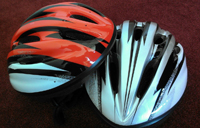 If you were in Boston last week, there is a good chance you saw a few cyclists. It was Bay State Bike Week and cyclists came out strong for events and group rides.
If you were in Boston last week, there is a good chance you saw a few cyclists. It was Bay State Bike Week and cyclists came out strong for events and group rides.
While many cyclists were wearing helmets, a new report says not all are. According to the City of Boston Cyclist Safety Report, from 2009 to 2012, cyclists were wearing helmets in less than 50 percent of incidents responded to by Boston Emergency Medical Services (Boston EMS).
Women wore helmets in 60 percent of incidents while men wore them in 43 percent.
Overall, the city reports 72 percent of cyclists citywide are wearing helmets.
Cyclists who wear bike helmets reduce their risk of head injury in a cycling accident by as much as 85 percent and the risk of brain injury by as much as 88 percent, according to the National Highway Traffic Safety Administration.
The city’s report shows bike accidents in Boston have increased from 2010 to 2012. The Boston Police Department reports a 2 percent increase while Boston EMS reports 9 percent. Nine cyclists died in accidents, including five in 2012. Ridership has also increased over this time as the city expanded infrastructure and launched the Hubway bike share program, making hundreds of new bikes available for short-term rentals.
Boston Bikes (the office which manages the city’s bike programs) reported a 16-28 percent increase in bike trips over that period. In the city’s report, Mayor Thomas Menino has pledged to decrease the cyclist crash injury rate by 50 percent by 2020.
Bike Helmets in Boston
In Massachusetts, cyclists who are 16 years of age or younger must wear helmets while riding bicycles, under M.G.L. c.85 Section 11B. The helmet must be secured to the cyclist’s head with straps and meet standards established by the U.S. Consumer Product Safety Commission.
But they are important for cyclists of all ages. The Boston cyclist safety report, which was produced by a number of city offices, has a long-term goal of passing a law requiring cyclists of all ages to wear helmets in Boston.
The city has tried to make discount helmets available to riders, launched a $40,000 “Wear a Helmet” advertising campaign promoting helmet usage and plans to install helmet vending machines at Hubway bike share stations. It also stresses helmet usage through its community programming.
In addition, Hubway riders agree to wear helmets as part of their rental agreement. But a study last year revealed many riders are not holding up their end of the deal. In the study, researchers at Beth Israel Deaconess Medical Center reported 80 percent of bike-share users in Boston and Washington D.C. were not wearing bike helmets. By contrast, riders who owned their own bike wore their helmets about half the time.
The study’s author wrote that head injury accounts for about one third of all bicycle injuries and about three-quarters of all bicycle-related deaths.
Bike Helmet Law for Boston?
Boston was one of the first cities in the country to offer bike sharing. It would be leading the way again if it passed a law requiring cyclists of all ages to wear helmets. Massachusetts, the District of Columbia and 21 other states require cyclists under 16 to wear helmets, but there are no states which mandate use by adults, according to the Insurance Institute for Highway Safety.
There are other cities and towns with laws or ordinances requiring helmets be worn by cyclists of all ages, including Dallas, Texas and Sykesville, Maryland. There is a bill proposed in the Legislature to make Maryland the first state to require cyclists of all ages to wear helmets.
In Washington State, more than two dozen communities have laws or ordinances requiring helmets to be worn by all ages, but there is no statewide law.
Bike Month: Time for Massachusetts to Think About Safety
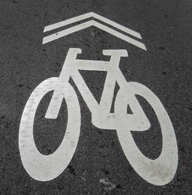 This is National Bike Month, when cyclists gather for events and rides all over the country. In Massachusetts, the busiest time is during Bay State Bike Week, which began last weekend. Cyclists from Boston to Springfield to Cape Cod are being encouraged to pedal to and from work in the name of fitness and reducing traffic congestion on the roads.
This is National Bike Month, when cyclists gather for events and rides all over the country. In Massachusetts, the busiest time is during Bay State Bike Week, which began last weekend. Cyclists from Boston to Springfield to Cape Cod are being encouraged to pedal to and from work in the name of fitness and reducing traffic congestion on the roads.
But along with the fun, Bike Month is a time to ask ourselves and lawmakers if we can make the roads safer to prevent personal injury to bicyclists.
While Boston has been called a world-class cycling city in recent years, safety advocates say we can do better. This month, the League of American Bicyclists dropped the state’s ranking from third to sixth in its 2013 Bicycle Friendly State Rankings, offering these and other suggestions to state officials:
Safe Passing Law. Adopt a safe passing law with a minimum distance of three feet to address bicycle safety.
Vulnerable Road User. Adopt a vulnerable road user law that increases penalties for motorists that injuries or kill bicyclists or pedestrians.
Cell Phone Ban for Drivers. Pass a cell phone ban for all drivers. Currently, Massachusetts bans all drivers from texting while driving but only bans drivers under 18 from talking on their cell phones and driving.
Bicycle Riders Manual. Create a statewide bicycle riders manual with laws, state bike routes and laws for cyclists.
MassBike, the state’s leading advocacy group for cyclists, has been seeking passage of a vulnerable road users bill that increases penalties for drivers who injure or kill a bicyclist or others defined as a vulnerable road user. MassBike first filed a bill with the Massachusetts Legislature in 2011 and refiled a few months ago for the start of the new legislative session.
Under the bill, drivers found guilty of crimes such as motor vehicle homicide or hurting or killing a person while driving drunk would face double the normal fines if the victim is considered a vulnerable road user.
The bill defines vulnerable road users as “a pedestrian or a person operating a bicycle, handcycle, tricycle, skateboard, roller skates, in-line skates, wheelchair, non-motorized scooter or any non-motorized vehicle, or a person riding a horse.”
Additionally, the bill would require violators to take a traffic class and perform 100 hours of community service related to road safety. There would be special penalties for drivers who harass vulnerable users with their vehicles. Meanwhile, victims would be given guidelines for filing civil lawsuits against drivers who assault or threaten them.
Another bill proposed by MassBike is the Bicycle Lane Bill, which would make it a violation for a car to park or stand in a marked bike lane. Boston and some other communities have bans, but MassBike seeks a statewide ban.
Read about other bills filed and supported by MassBike.
Texting While Driving Study: Voice-to-Text is Not Safer
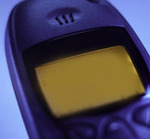
We all have one: a cell phone we keep close by throughout the day, to keep in touch with work and the people in our lives. Many of us now use smart phones so in addition to talking and texting, we have quick access to apps, cameras and other neat gadgets. The bottom line is we get more use from our mobile phones now than ever.
While the conveniences are nice, they are a negative when it comes to driving. Studies have long shown cell phone use of any type is a distraction which can result in drivers taking their eyes off the road and causing motor vehicle accidents.
Most states have some restriction on use. The District of Columbia and 39 states, including Massachusetts, ban texting while driving. Ten states and the District of Columbia ban all phone use by drivers. Massachusetts bans all cell phone use for drivers under 18.
Some say these efforts and related educational campaigns are falling short and the use of smart phones is actually increasing. The market has certainly grown dramatically. By last October, the count was over 1 billion smart phone users worldwide, according to one firm’s report. By 2015, another billion users are expected to get smart phones.
Many new users are using talk-to-text technology while they drive, but a new study finds this is not actually any safer. The study by the Texas A&M Transportation Institute was released during April’s National Distracted Driving Awareness Month. The study was the first to compare voice-to-text and manual texting.
The Study
The transportation institute studied 43 research participants driving a vehicle on a closed course. Drivers traveled the course without any cell phone use, then three more times performing texting exercises. On the first two laps, they used two different voice-to-text applications. On the third lap, they texted manually.
Researchers found driver response was significantly delayed when drivers used voice-to-text or sent text messages. In both cases, drivers took about twice as long to react as they did when they were not texting.
Manual texting required slightly less time than voice-to-text, but driver performance was roughly the same.
One theory for why is drivers who used voice-to-text had to look down at the phone after they spoke their message and check it before sending, taking their attention from the road.
Massachusetts Texting While Driving Law
The Massachusetts law which bans texting while driving is M.G.L. c. 90, Sec. 13B. It took effect Sept. 30, 2010.
Under the law, drivers in Massachusetts are banned from both texting and e-mailing while operating a car. They cannot read or browse the Internet. Voice-to-texting is not specifically addressed in the law.
Some police departments are seeking to enforce the law. In January, West Bridgewater police stopped 51 drivers over four hours on a Saturday afternoon. In March, another four-hour sting caught 43 drivers texting.
Texting while driving is a non-criminal offense which carries a $100 for the first offense, $250 for the second offense and $500 for the third.
Drivers who are texting and driving and cause injury or death can also be criminally charged under M.G.L. c. 90, Sec. 24(2)(a). Read about a recent case.
Dangerous Magnet Toys Recalled by Major Retailers

The Consumer Product Safety Commission (CPSC) has moved a step closer to taking two dangerous magnet toys out of the hands of children.
On April 12, six retailers voluntarily recalled Buckyballs and Buckycubes. The stores included Barnes & Noble, Brookstone, some Hallmark stores, Marbles the Brain Store and Think Geek.
Maxfield & Oberton Holdings of New York City, the importer and distributor, refused to issue a recall last year, prompting the CPSC to file a lawsuit against the company in July to stop sales. The rare legal action – one of just four taken by the CPSC in the past 11 years – resulted in the company discontinuing its products in October. It stopped doing business in December.
The product was manufactured by Ningo Prosperous Imp. Exp. Co. Ltd. of Ningbo City in China.
Buckyballs and Buckycubes vary in size and color, but they are essentially a ball or cube of small powerful magnets. They were sold in containers of 10 to 216 magnets that can become loose. The first of the two products was introduced in the U.S. in March 2009. Since then, over three million sets of magnets have been sold in U.S. retail stores and online.
Maxfield & Oberton initially marketed Buckyballs to children, calling it “an amazing toy.” It later rebranded the magnet toys as an adult desk toy and stress reliever.
But while the magnets were being marketed to adults, the CPSC was still receiving reports that children were swallowing them. It has received 54 reports of injuries, all but one requiring medical treatment.
CPSC Complaint
The CPSC’s July 25, 2012 complaint alleged that the magnet products had defective labeling and warnings, defective design, and posed a substantial product hazard.
The CPSC began working with the company on labeling three years ago, when the magnets were labeled for use by children “Ages 13+.” The agency said the magnets should have been marketed for age 14 and up.
Maxfield & Oberton changed the labeling and agreed to a voluntary recall of 175,000 magnet toys, but the CPSC said the injuries continued. In its complaint, it states, “…labeling and warning labels cannot guard against the foreseeable misuse of the product and prevent the substantial risk of injury to children.”
Company officials did not agree with the CPSC’s action. In October, they posted a statement on their website that read in part: “We’re sad to say that Balls & Cubes have a one-way ticket to the Land-of-Awesome-Stuff-You-Should-Have-Bought-When-You-Had-the-Chance.”
Dangerous Toy
Over the past few years, the CPSC set up a Magnets Information Center on its website to educate the public about the danger of swallowing magnets.
The risk is that if a child ingests more than one of the powerful magnets, they can become attracted to each other while in the intestines, pinching tissue and damaging the intestinal walls. This can result in a wide range of symptoms, including vomiting, abdominal pain, infection and death. Surgery is often required and becomes more complicated because the magnets can stick to the metal surgical tools.
And in some cases children ingested more than one or two. CBS News reported the case of a 3-year-old Oregon girl who swallowed 37 Buckyballs. The CPSC complaint details cases of other young children who have swallowed numerous magnets.
Related:
CPSC administrative complaint
Recall information for consumers
Boston Bike Season Begins: Tips to Protect Yourself
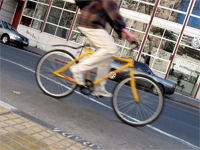
After a long, hard winter, cyclists are finally enjoying a taste of spring weather. All across Massachusetts, bikes are being pulled out of storage, tuned up, and taken back out on the road.
Boston celebrates the return of the nation’s premier bike-sharing program, Hubway, which is celebrating its third season in town. The program has now expanded from Boston to Cambridge, Somerville and Brookline. And today, to celebrate opening day for the Red Sox, Hubway is having a Rolling Celebration ride through the cities.
If you are a Massachusetts bicyclist, now is a good time to review some important rules and regulations, as well as some important insurance tips:
Roads. You can travel on the side of the road or in the middle of the lane. Up to two cyclists can ride abreast in a lane. Many communities also offer designated bike lanes and shared lanes. Turns to the left can, and should, be made from the left-most lane.
Cars. Cars must give you the right of way; they cannot turn left in front of you unless it is safe to do so; they may not make a right turn in front of you if they have just passed you; they must pass at a reasonably safe distance, or wait until it is safe to do so.
Sidewalks. You are allowed to ride on sidewalks outside business districts, unless prohibited by local regulations.
Pedestrians. Remember to give pedestrians the right of way and warn pedestrians you are overtaking or passing them. You should have a bell or horn on your bicycle, and there is nothing wrong with a friendly “Passing on your right.”
Bike Helmets. Helmets are required for cyclists ages 16 and younger in Massachusetts, but they are also an important tool for riders of all ages. Head injuries are among the most serious injuries a cyclist can sustain in a bike accident. In 2009, 630 cyclists died in the United States and 91 percent were not wearing helmets, according to the Insurance Highway Safety Institute.
Bike Lights and Reflectors. If you ride in the dark (one-half hour after sunset or one-half hour before sunrise), make sure your bike has lights and reflectors. You must have a white light facing forward and a red light facing backward. Cyclists must have reflectors on their pedals or reflective material around their ankles. You can have as many lights as you like.
Bike Maps. Bike lanes and bike paths may offer safer travel options. Call your local town or city hall and ask if they produce a bike map so you can plan your route. These two are available online: Somerville Bicycle Map and the Boston Bicycle Map.
Bike Parking. You are allowed to park your bike in a bike rack or anywhere on a sidewalk or road, but your bike cannot obstruct pedestrians or motor vehicle traffic. See this map for Boston Bike Parking.
Bike Accidents. If you are in an accident, the most important step is to obtain medical care, even if you do not initially think you are seriously injured. If you are able, take pictures of the position of your bike and the car at the accident scene. Later, file a report with the local police department. Under the law, you must notify the police for any accident involving serious injury or over $100 or greater in property damage.
Protect Yourself With Adequate Insurance. Believe it or not, insurance on your own car may protect you if you are in an accident. Your car insurance may provide uninsured or underinsured coverage for serious injuries. Read our article, What Every Massachusetts Bicyclist Needs to Know About Car Insurance. Your homeowner’s policy may provide coverage for property damage.
Other Massachusetts Bicycling Resources
MassBike
What to Know About Cycling in Boston
Boston Bikes
City of Cambridge Police Page on Bike Safety
Somerville Bicycle Committee
Massachusetts Compounding Pharmacy Recalls All 2013 Products
An unannounced inspection at a Massachusetts compounding pharmacy recently uncovered suspicious material on medication containers, leading the operation to order a voluntarily recall for all its 2013 products.
Pallimed Soluitions, Inc. of Woburn issued the recall after the visit from the Food and Drug Administration (FDA) and the Massachusetts Board of Registration in Pharmacy. The agencies found an unknown substance on sterile compounding products. Five affected vials were discovered and no illness has been reported. The recalled drugs include those used for erectile dysfunction treatment, testosterone replacement therapy, vitamin injections and ophthalmic preparations.
The Board of Registration has ordered the pharmacy to halt sterile compounding activities. In December, the compounding pharmacy was among three cited by the state pharmacy board during unannounced inspections. Pallimed was ordered to stop production of sildenafil citrate, which is sold as Viagra. The inspection found the medication was being prepared with improper components.
Medication involved in the recall was shipped to patients and medical offices in Massachusetts, New Hampshire, Rhode Island, Maine, Connecticut, Vermont and 15 other states. Recipients are advised to discontinue use of medications and return to Pallimed Solutions.
The FDA and Massachusetts Board of Registration in Pharmacy share regulation of compounding pharmacies in Massachusetts, which in contrast to large manufacturers, are allowed to dispense medications for individuals with prescriptions, often with conditions which cannot be met in regular pharmacies.
Both agencies are still responding to the aftermath of 2012, when the New England Compounding Center in Framingham was linked to a deadly fungal meningitis outbreak, which sickened over 650 people in 19 states and killed at least 39 others.
In January, Gov. Deval Patrick proposed new licensing requirements for compounding pharmacies, including to let the state assess fines for violating regulations, to protect whistleblowers and reorganize the state pharmacy board.
Along with federal regulations, compounding pharmacies in Massachusetts operate under 247 CMR. Under M.G.L. 94C, section 21 and 105 CMR 721.000, pharmacies and pharmacists must have a prescription for a specific patient before they dispense a medication.

